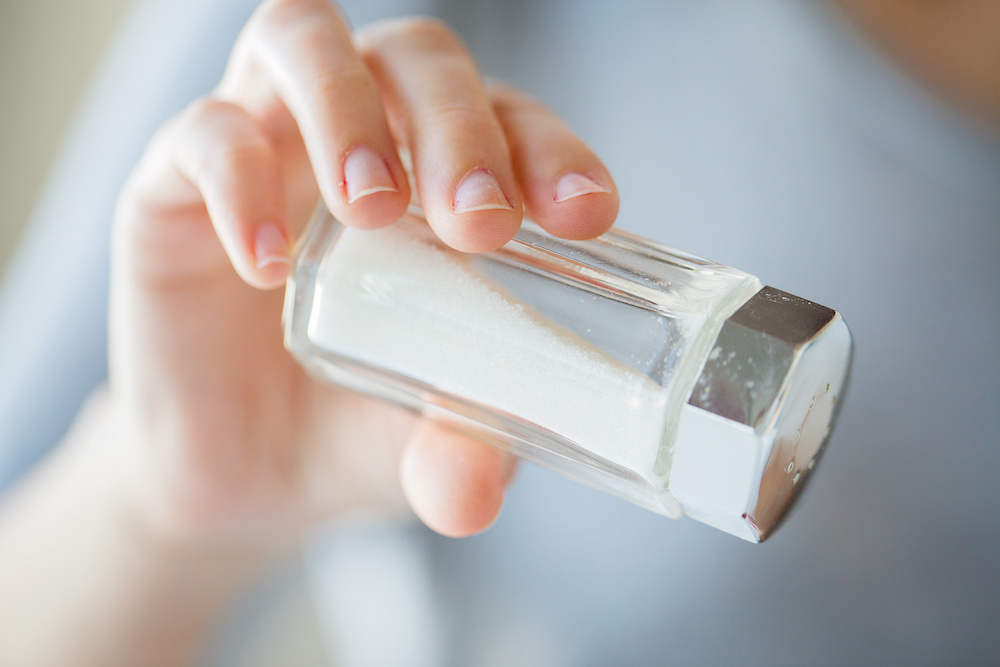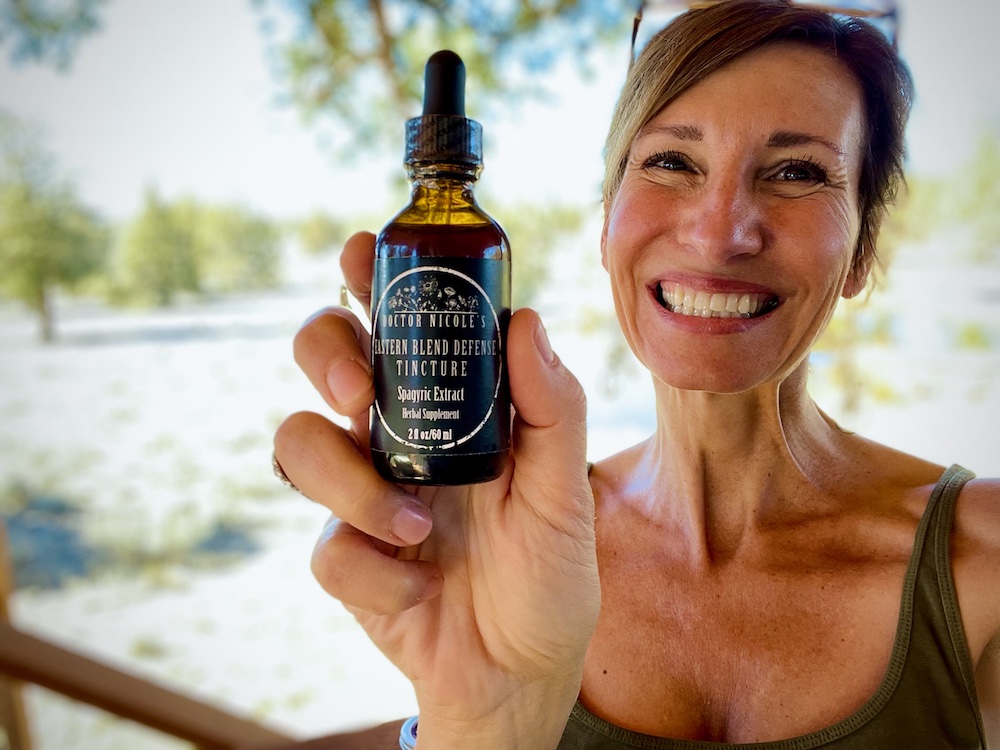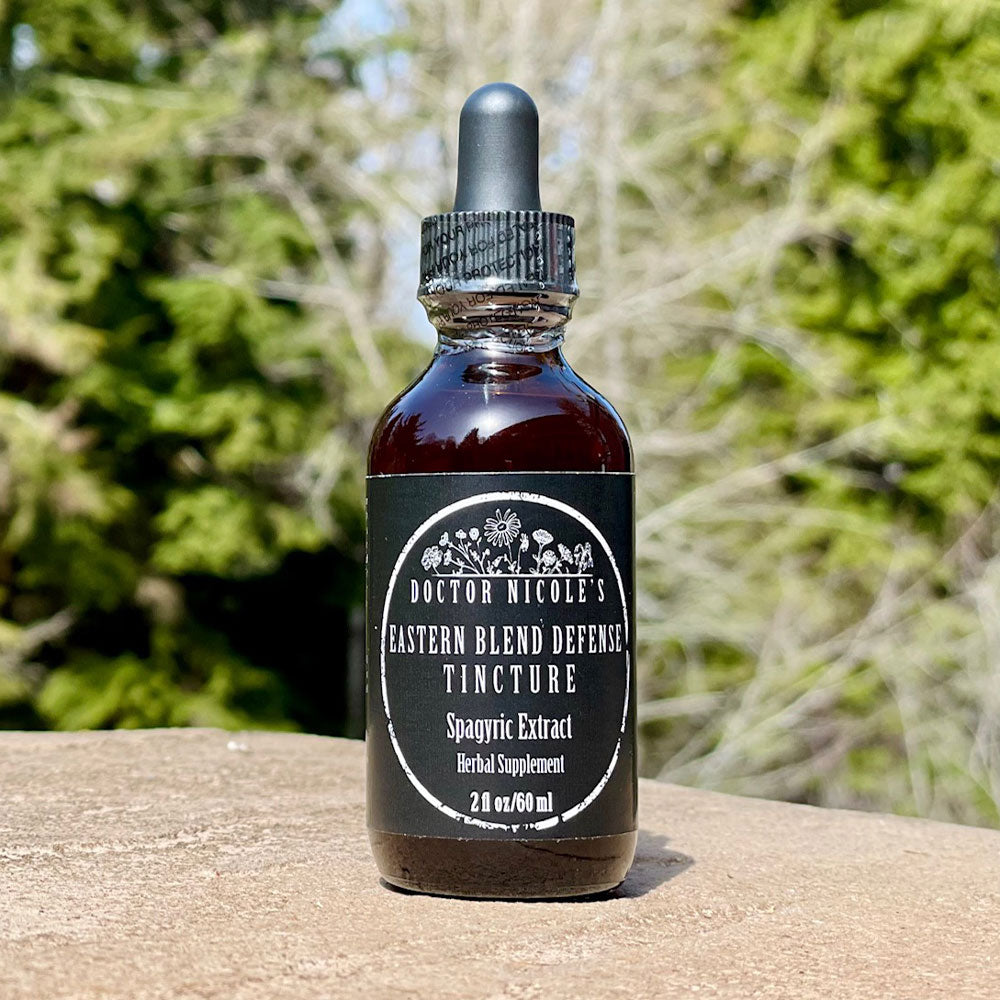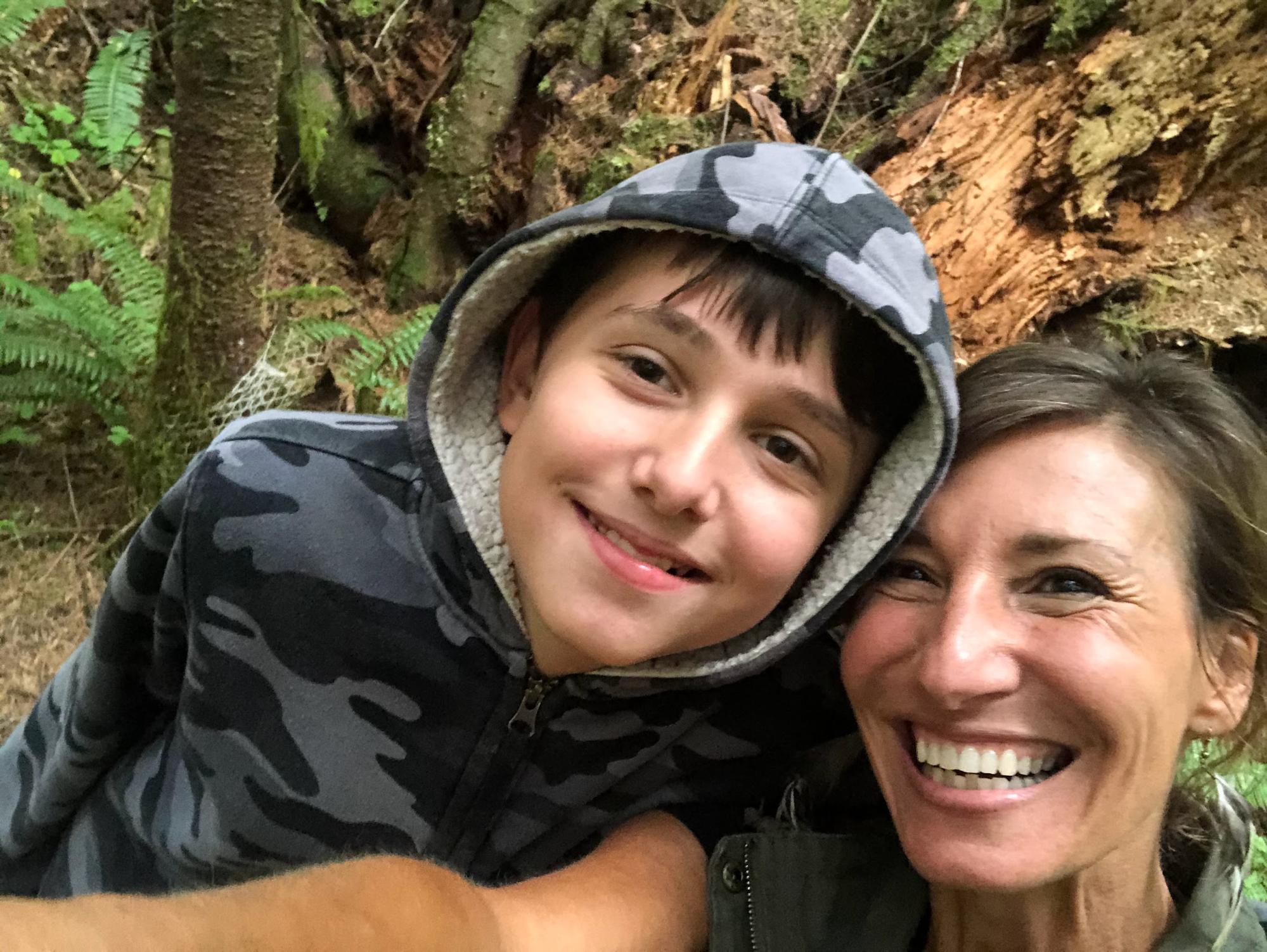Salt Intake and Disease
For years, researchers have known that excess sodium intake is linked with cardiovascular disease, bone loss, kidney disease, stomach cancer, and even autoimmune conditions. And now, scientists have found that it also lowers our resistance to bacteria infections, contrary to previous beliefs about salt intake. If you find yourself reaching for the salt shaker or processed foods more often than not, keep reading as I include several tips below that can help you to curb your salt habit once and for all.
High Sodium Intake and Immune Deficiencies: The Research
A recent study published in the journal Science Translational Medicine discovered that consuming more than five grams of salt a day (the equivalent of one level teaspoon), can wreak havoc on our immune system.1 While researchers have known for quite some time that a high-sodium diet has significant health consequences, Prof. Dr. Christian Kurts from the Institute of Experimental Immunology at the University of Bonn explains, “We have now been able to prove for the first time that excessive salt intake also significantly weakens an important arm of the immune system.”2
Their findings are intriguing because for many years scientists believed the opposite: high-salt diets actually helped the immune system. This idea was based on studies that examined why laboratory animals with skin parasites healed faster when they ingested more salt. This is due to the fact that macrophages — immune cells that attack, consume, and digest parasites — are more active in the presence of salt.
Buț Katarzyna Jobin, lead author of the new study points out “Our results show that this generalization is not accurate.”2 Why? Simply put, the body typically keeps sodium levels tightly regulated — with one exception: the skin, which acts like a salt reservoir for the body. This is why high-sodium intake is helpful for some skin conditions.
For the rest of the body, the kidneys have a sodium chloride sensor that triggers a mechanism that excretes excess salt. However, this mechanism also causes “so-called glucocorticoids to accumulate in the body. And these in turn inhibit the function of granulocytes, the most common type of immune cell in the blood.”2
Granulocytes, similar to macrophages, are scavengers — but they attack bacteria instead of parasites. If granulocytes are compromised, it leads to heightened severity of infection, which is exactly what the team found in mice with a listeria infection. Urinary tract infections were also much slower to heal in animals fed a high-sodium diet.
What about people? The researchers had human participants consume six grams of salt (roughly the amount found with two fast food meals) in addition to their regular daily intake. A week later, the team took blood samples to observe granulocyte activity. They found the immune cells were significantly compromised after the test subjects began to eat a high-salt diet, similar to the animal model.
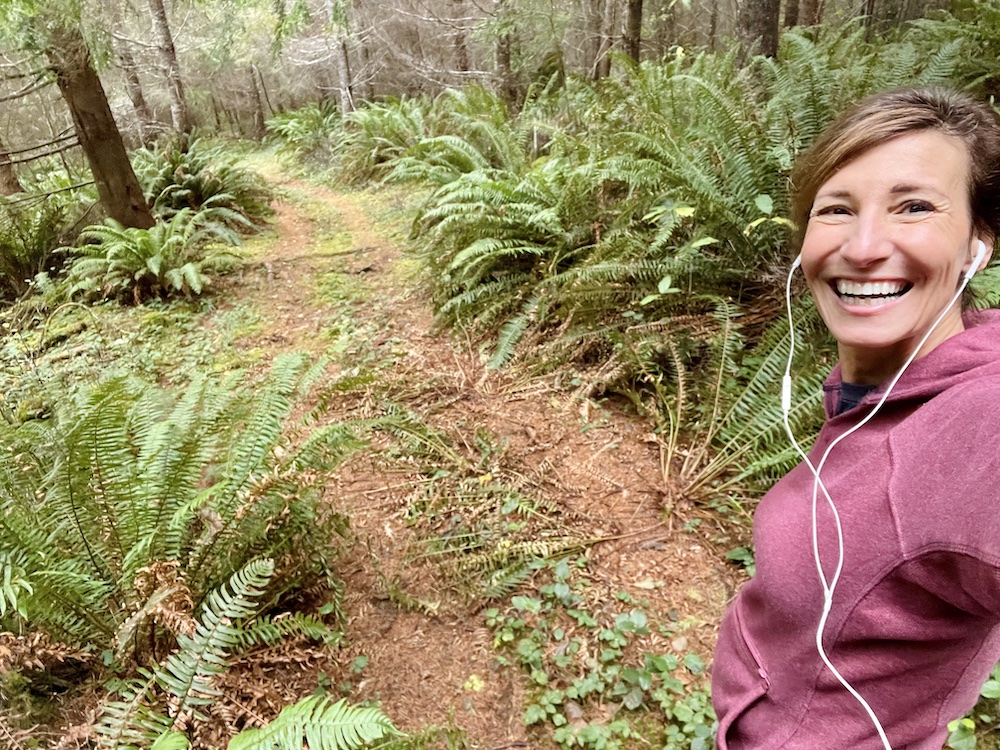
My Top Tips For Curbing Your Salt Habit
If these findings have given you pause for thought about your own salt habit, here are several tips for how to reduce your sodium levels:
Sweat. Have you ever woken up the next morning after a restaurant meal and found yourself bloated and puffy from too much salt? If so, the best way to flush it from your system is to sweat it out, either through exercise, hot yoga, or a sauna. Make sure to drink plenty of water and significantly reduce your salt intake throughout the day.
Natural diuretics. Another helpful addition for those times when you have consumed excessive sodium is to use herbal remedies that help the body to shed excess salt and water. Two of my favorites are stinging nettle and reishi mushroom. Both can be found in my apothecary as convenient and easy-to-use tinctures.
High potassium foods. When you eat foods that are rich in potassium, it helps to balance your sodium levels. Good choices include peas, mushrooms, avocados, potatoes, spinach, oranges, and bananas.
Make meals from scratch. Did you know that 70% of sodium consumption for Americans comes from packaged and restaurant meals? Because of this, it is best to make meals from scratch if you would like to reduce your salt intake. When you cook your meals, try to gradually reduce the amount of salt used. Start with adding half the usual amount. Once you have adapted to that, reduce it further to a quarter of what the recipe calls for.
Spice-up your diet. Instead of reaching for the salt shaker, add flavor by using fresh and dried herbs along with spices. Basil, oregano, cilantro, sage, rosemary, and parsley are great choices. You can also boost your dish by adding turmeric, spicy-hot cayenne and chipotle seasonings, or smoked paprika. Just make sure any spice blends you use do not contain added salt. And don’t forget about savory vegetables such as leeks, onions, and garlic.
Herbal Solutions for Immune Health
In addition to lowering your salt intake, here are four outstanding herbal medicines that can help to boost your immunity.
Chinese Skullcap
- Antiviral – The baicalin and wogonin content in Chinese skullcap (Scutellaria baicalensis) has been shown to exhibit strong antiviral activity for severe respiratory illness, the common cold, and influenza.
- Anti-inflammatory
- Demonstrates great potential for acute lung injury induced by influenza
- Alleviates the symptoms of arthritis
- Calms allergies
- Soothes anxiety, insomnia, and sleep disorders
- Numerous studies have established that Chinese skullcap encourages apoptosis (programmed cell death) of skin, colon, prostate, and bladder cancers.8,9
- Research has shown skullcap also prevents the growth and spread of ovarian, breast, liver, pancreas, bone, and colon cancers.3,4,5,6
- Skullcap protects against oxidative stress and has both neuroprotective and cognitive enhancement effects due to its baicalin content.7
Japanese Honeysuckle
- Antiviral- Demonstrates strong antiviral activity against severe respiratory illness.10
- Antibacterial
- Anti-inflammatory
- Helps with upper respiratory tract infections
- Reduces blood sugar levels in diabetic patients.8
- Modulates the immune system and significantly increases killer (NK) cells.11
Japanese Knotweed
- Antiviral – Japanese knotweed contains high concentrations of trans-resveratrol, the active form of the compound most useful to our body. It has strong antioxidant activity and inhibits viral replication. Studies have shown that resveratrol holds promise as a potent antiviral for severe respiratory infections.12
- Antibacterial and antifungal
- Boosts cardiovascular health
- Reduces cancer risk
- Improves cognitive function
- Lowers blood pressure
- Helps to heal metabolic syndrome
- Strong activity against both growing B. burgdorferi and non-growing stationary phase B. burgdorferi in the treatment of Lyme disease.13
- Reduces neuroinflammation and neurodegenerative diseases such as Alzheimer’s and dementia.14
Cordyceps Mushroom
- Antiviral – Cordycepin from C. militaris is thought to inhibit viral entry and viral replication into the host body’s cells
- Combats fatigue
- Fights chronic inflammation
- Asthma
- Neuroprotective
- Antimicrobial
- Boosts athletic performance
- Improves brain function
- Manages blood sugar levels
- Supports cardiovascular health
- Containing two unique compounds, d-mannitol cordycepin and 3’-deoxyadenosine, cordyceps helps control blood sugar levels by mimicking the activity of insulin.
- Cordycepin also helps to prevent the replication of severe respiratory viruses within the cell.15
- Research suggests cordyceps inhibits the growth of cancer cells, including those of the lung, colon, and liver.16,17,18
Our Eastern Blend is a potent formulation that includes the four botanicals above. These research-backed herbs address a wide-range of health concerns, including: viral and bacterial infections, respiratory illness, Lyme disease, diabetes, cancer, anxiety, insomnia, cardiovascular issues and more. It has powerful anti-inflammatory action and helps to boost/modulate the immune system.
Are you ready to harness the power of herbal medicines for yourself? Visit the apothecary today!
Nicole Apelian
Nicole’s Apothecary Products in this Post
References
- Katarzyna Jobin, Natascha E. Stumpf, Sebastian Schwab, Melanie Eichler, Patrick Neubert, Manfred Rauh, Marek Adamowski, Olena Babyak, Daniel Hinze, Sugirthan Sivalingam, Christina K. Weisheit, Katharina Hochheiser, Susanne Schmidt, Mirjam Meissner, Natalio Garbi, Zeinab Abdullah, Ulrich Wenzel, Michael Hölzel, Jonathan Jantsch and Christian Kurts. A high-salt diet compromises antibacterial neutrophil responses through hormonal perturbation. Science Translational Medicine, 2020 DOI: 10.1126/scitranslmed.aay3850
- University of Bonn. (2020, March 25). Too much salt weakens the immune system: A diet rich in salt weakens the antibacterial immune defense. ScienceDaily. Retrieved March 25, 2023 from www.sciencedaily.com/releases/2020/03/200325143815.htm
- Pan, Q., Xue, M., Xiao, S. S., Wan, Y. J., & Xu, D. B. (2016). A Combination Therapy with Baicalein and Taxol Promotes Mitochondria-Mediated Cell Apoptosis: Involving in Akt/β-Catenin Signaling Pathway. DNA and cell biology, 35(11), 646–656. https://doi.org/10.1089/dna.2016.3312
- Ma, X., Yan, W., Dai, Z., Gao, X., Ma, Y., Xu, Q., Jiang, J., & Zhang, S. (2016). Baicalein suppresses metastasis of breast cancer cells by inhibiting EMT via downregulation of SATB1 and Wnt/β-catenin pathway. Drug design, development and therapy, 10, 1419–1441. https://doi.org/10.2147/DDDT.S102541
- Motoo, Y., & Sawabu, N. (1994). Antitumor effects of saikosaponins, baicalin and baicalein on human hepatoma cell lines. Cancer letters, 86(1), 91–95. https://doi.org/10.1016/0304-3835(94)90184-8
- Zhang, H. W., Yang, Y., Zhang, K., Qiang, L., Yang, L., Yang, L., Hu, Y., Wang, X. T., You, Q. D., & Guo, Q. L. (2008). Wogonin induced differentiation and G1 phase arrest of human U-937 leukemia cells via PKCdelta phosphorylation. European journal of pharmacology, 591(1-3), 7–12. https://doi.org/10.1016/j.ejphar.2008.06.024
- Sowndhararajan, K., Deepa, P., Kim, M., Park, S. J., & Kim, S. (2018). Neuroprotective and Cognitive Enhancement Potentials of Baicalin: A Review. Brain sciences, 8(6), 104. https://doi.org/10.3390/brainsci8060104
- Ikemoto, S., Sugimura, K., Yoshida, N., Yasumoto, R., Wada, S., Yamamoto, K., & Kishimoto, T. (2000). Antitumor effects of Scutellariae radix and its components baicalein, baicalin, and wogonin on bladder cancer cell lines. Urology, 55(6), 951–955. https://doi.org/10.1016/s0090-4295(00)00467-2
- Zhang, D. Y., Wu, J., Ye, F., Xue, L., Jiang, S., Yi, J., Zhang, W., Wei, H., Sung, M., Wang, W., & Li, X. (2003). Inhibition of cancer cell proliferation and prostaglandin E2 synthesis by Scutellaria baicalensis. Cancer research, 63(14), 4037–4043.
- Bandyopadhyay, S., Abiodun, O. A., Ogboo, B. C., Kola-Mustapha, A. T., Attah, E. I., Edemhanria, L., Kumari, A., Jaganathan, R., & Adelakun, N. S. (2022). Polypharmacology of some medicinal plant metabolites against SARS-CoV-2 and host targets: Molecular dynamics evaluation of NSP9 RNA binding protein. Journal of biomolecular structure & dynamics, 40(22), 11467–11483. https://doi.org/10.1080/07391102.2021.1959401
- Han, J. M., Kim, M. H., Choi, Y. Y., Lee, H., Hong, J., & Yang, W. M. (2015). Effects of Lonicera japonica Thunb. on Type 2 Diabetes via PPAR-γ Activation in Rats. Phytotherapy research : PTR, 29(10), 1616–1621. https://doi.org/10.1002/ptr.5413
- Zhou, X., Dong, Q., Kan, X., Peng, L., Xu, X., Fang, Y., & Yang, J. (2018). Immunomodulatory activity of a novel polysaccharide from Lonicera japonica in immunosuppressed mice induced by cyclophosphamide. PloS one, 13(10), e0204152. https://doi.org/10.1371/journal.pone.0204152
- Lin, C. J., Lin, H. J., Chen, T. H., Hsu, Y. A., Liu, C. S., Hwang, G. Y., & Wan, L. (2015). Polygonum cuspidatum and its active components inhibit replication of the influenza virus through toll-like receptor 9-induced interferon beta expression. PloS one, 10(2), e0117602. https://doi.org/10.1371/journal.pone.0117602
- Feng, J., Leone, J., Schweig, S., & Zhang, Y. (2020). Evaluation of Natural and Botanical Medicines for Activity Against Growing and Non-growing Forms of B. burgdorferi. Frontiers in medicine, 7, 6. https://doi.org/10.3389/fmed.2020.00006
- Jardim, F. R., de Rossi, F. T., Nascimento, M. X., da Silva Barros, R. G., Borges, P. A., Prescilio, I. C., & de Oliveira, M. R. (2018). Resveratrol and Brain Mitochondria: a Review. Molecular neurobiology, 55(3), 2085–2101. https://doi.org/10.1007/s12035-017-0448-z
- Verma A. K. (2022). Cordycepin: a bioactive metabolite of Cordyceps militaris and polyadenylation inhibitor with therapeutic potential against COVID-19. Journal of biomolecular structure & dynamics, 40(8), 3745–3752. https://doi.org/10.1080/07391102.2020.1850352
- Bizarro, A., Ferreira, I. C., Soković, M., van Griensven, L. J., Sousa, D., Vasconcelos, M. H., & Lima, R. T. (2015). Cordyceps militaris (L.) Link Fruiting Body Reduces the Growth of a Non-Small Cell Lung Cancer Cell Line by Increasing Cellular Levels of p53 and p21. Molecules (Basel, Switzerland), 20(8), 13927–13940. https://doi.org/10.3390/molecules200813927

